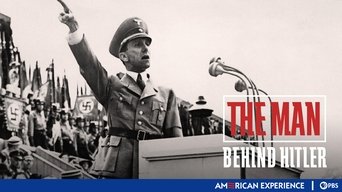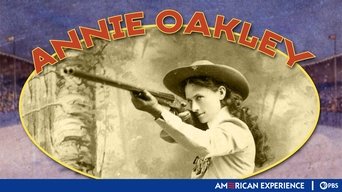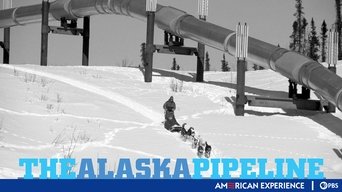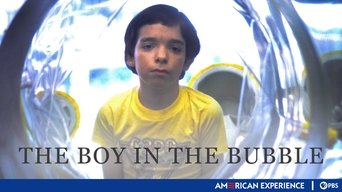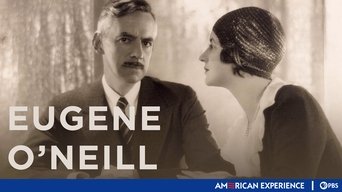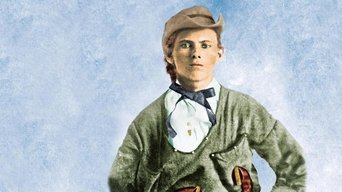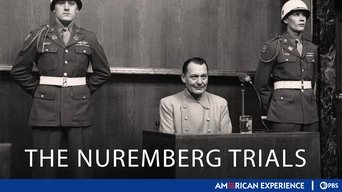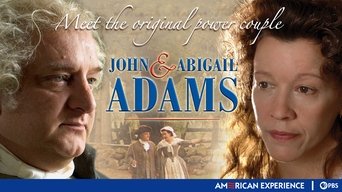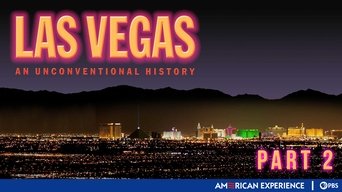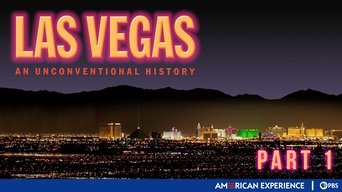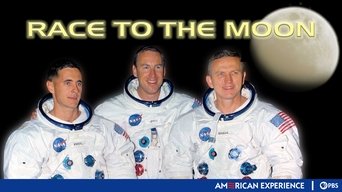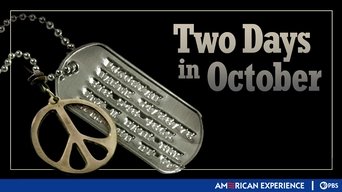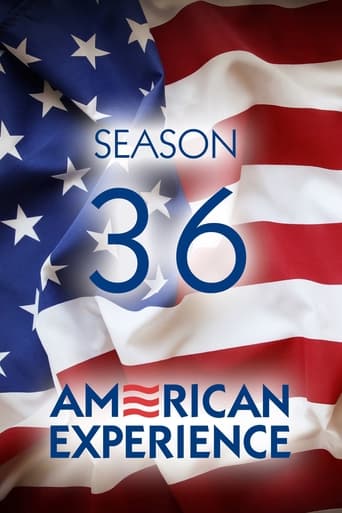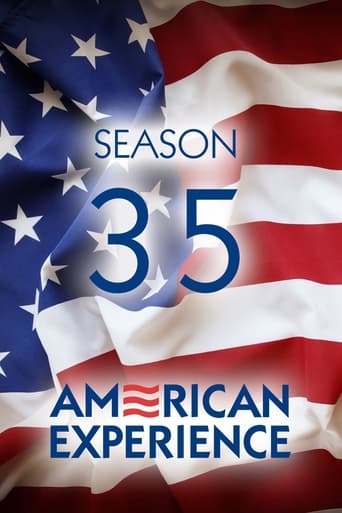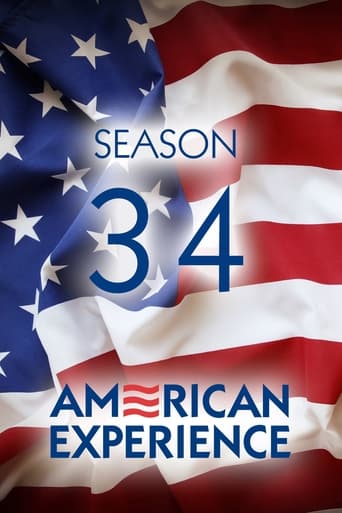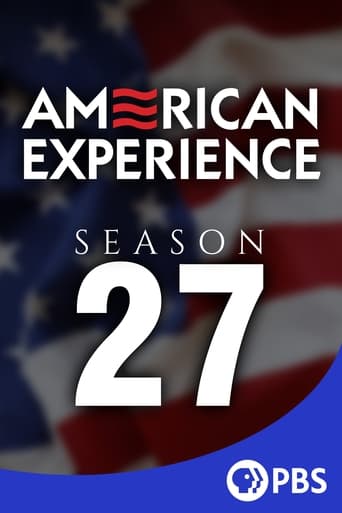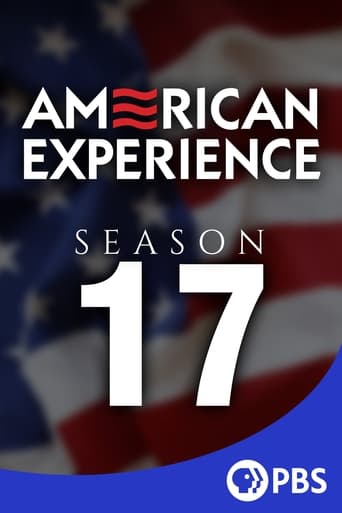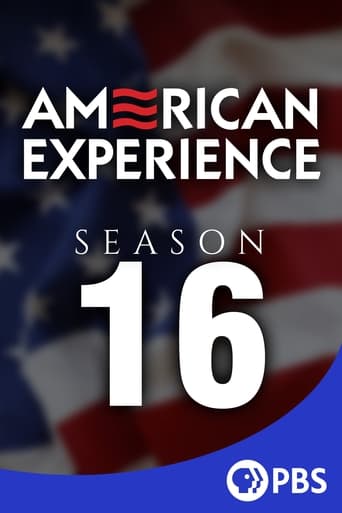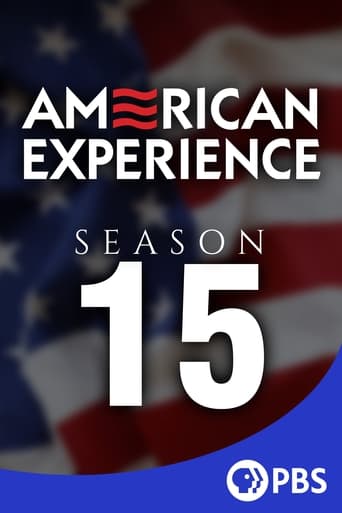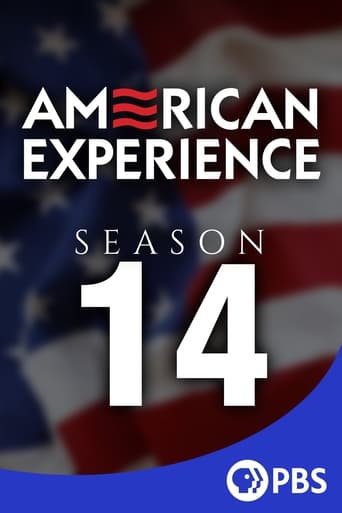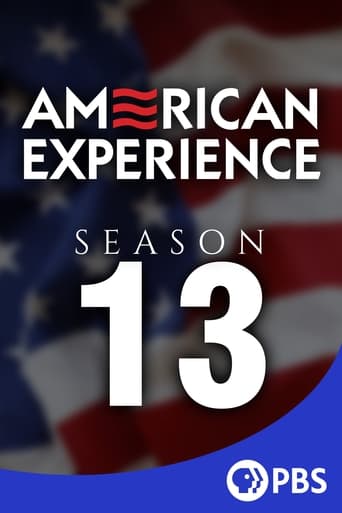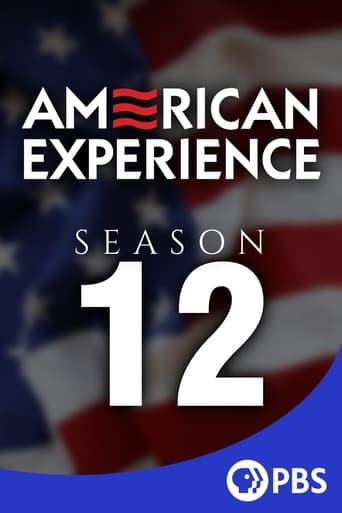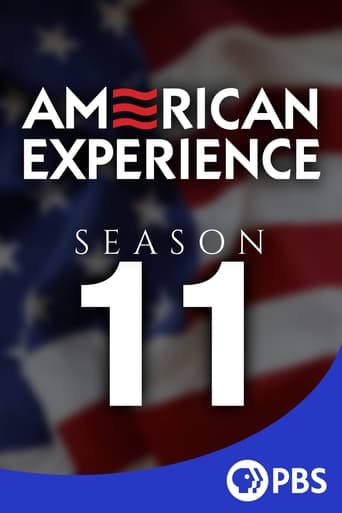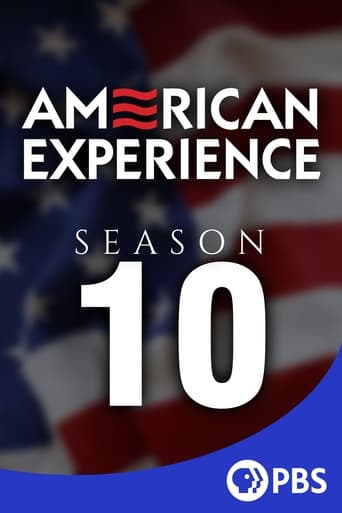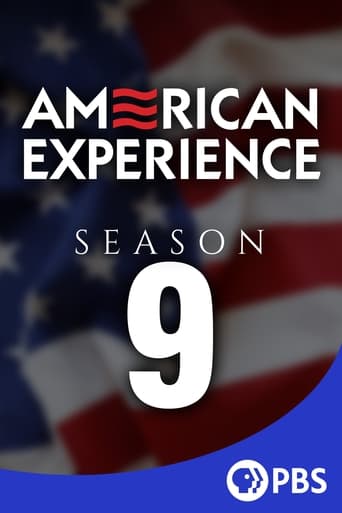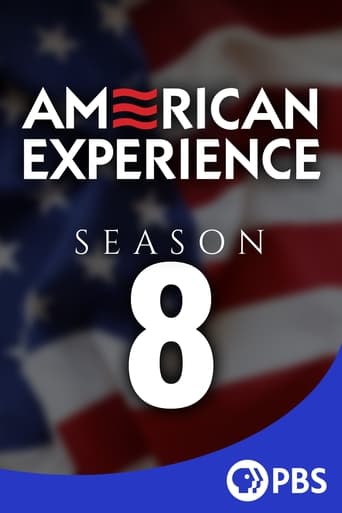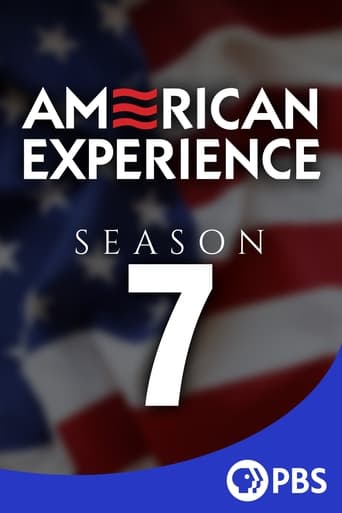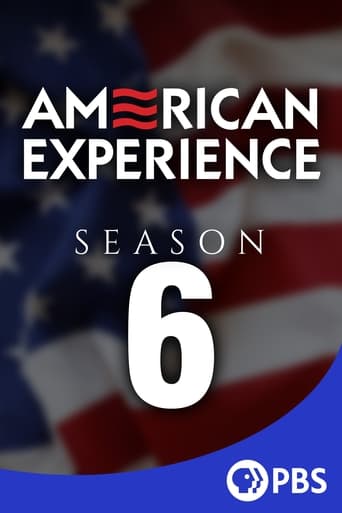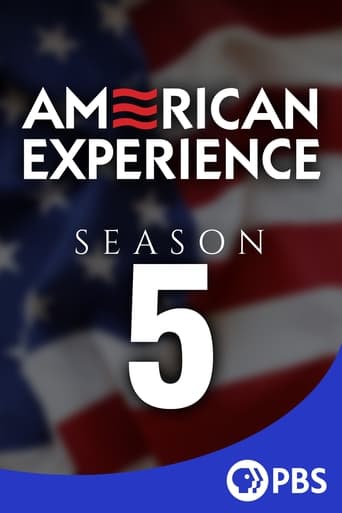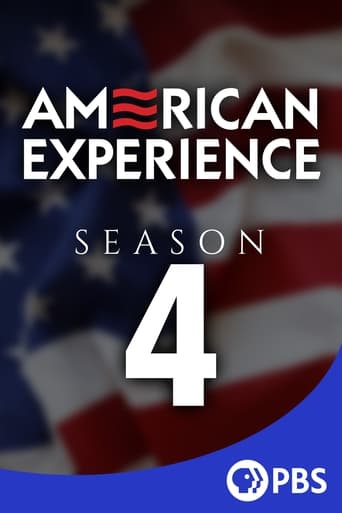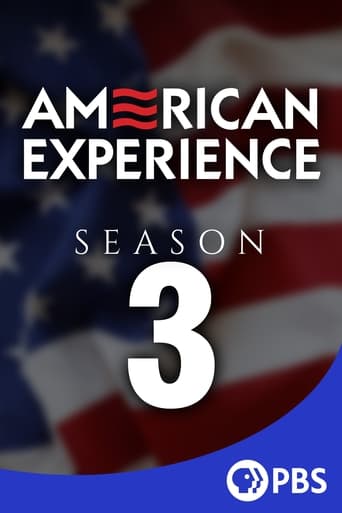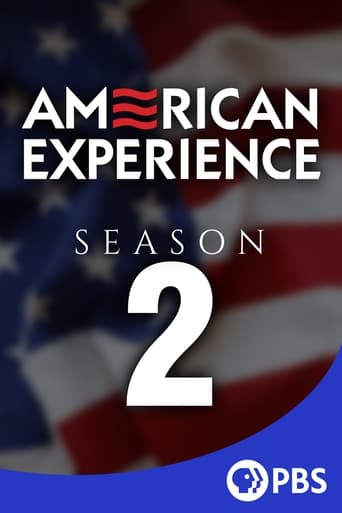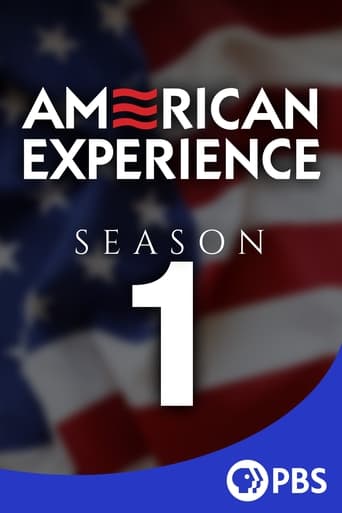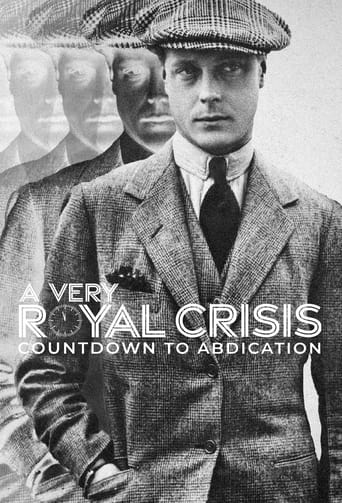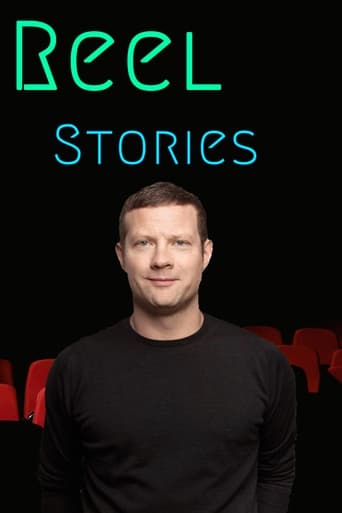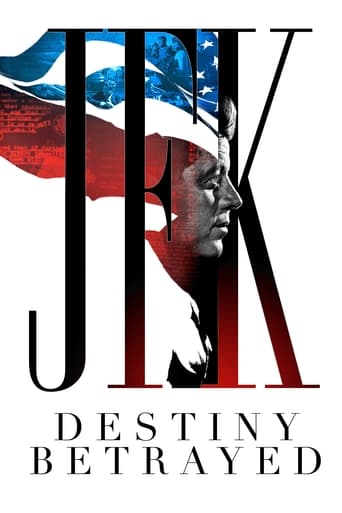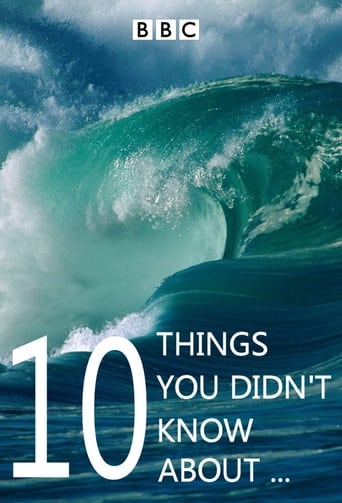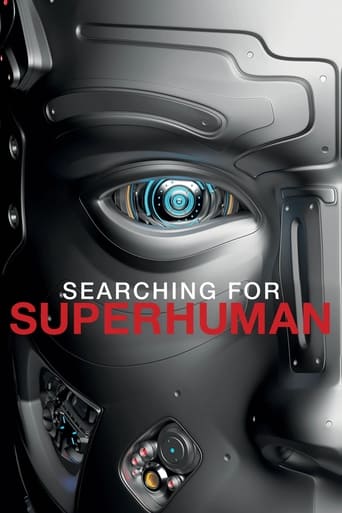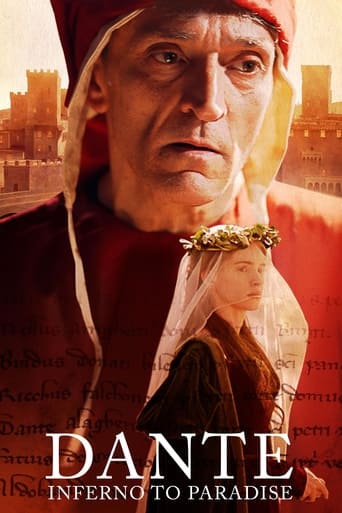American Experience Season 18

TV's most-watched history series brings to life the compelling stories from our past that inform our understanding of the world today.
Watch NowWith 30 Day Free Trial!
American Experience
1988 / TV-PG

TV's most-watched history series brings to life the compelling stories from our past that inform our understanding of the world today.
Watch Trailer
American Experience Season 18 Full Episode Guide
A profile of Joseph Goebbels (1897-45), who helped launch Hitler's rise to power. Kenneth Branagh provides voice-over readings of Goebbels' personal diaries. Included: footage from German archives tracing Goebbels' life; how Goebbels continually stage-managed his life and reinvented himself from his early days as a radical “popular socialist” to his death.
An on-target profile of the sharpshooter (1860-1926) who was “the first American woman ever to become a superstar.” Included: Oakley, at 15, winning a shooting match with future husband Frank Butler; achieving stardom with Buffalo Bill's Wild West Show; filing libel suits against a number of newspapers for reporting that she was a drug addict; teaching thousands of women to shoot, while opposing women's suffrage.
The history of the Alaska Pipeline, which was built in the 1970s to transport oil across 800 miles of pristine wilderness, from Prudhoe Bay to Valdez. Included: the 1968 discovery of the largest oil field in North America at Prudhoe Bay; the battle between Native Americans and the government over the land the pipeline would cross; environmental concerns; and construction of the pipeline itself, which employed 78,000 people and cost more than $8 billion.
The absorbing story of David Vetter (1971-84), who had severe combined immunodeficiency and lived inside a sterile plastic chamber for 12 years. Included: comments from his mother, Carol Ann Vetter Demaret; and from doctors, who discuss their feelings about the use of the plastic chamber. Also: examinations of the boy's birth and his death, which occurred following a bone-marrow transplant from his sister.
An absorbing profile of the esteemed playwright (1888-1953). Included: excerpts from his plays are performed by Al Pacino, Zoe Caldwell, Christopher Plummer, Vanessa Redgrave, Liam Neeson and Natasha Richardson. Also: comments from Tony Kushner, John Guare, Sidney Lumet and Jason Robards. Plays include “The Iceman Cometh” and “Long Day's Journey into Night.”
A look at the coordinated hijacking of four jetliners in 1970 by the Popular Front for the Liberation of Palestine, which blew up the evacuated planes in Jordan. Included: the militants' use of civilians to further their goals.
A striking profile of the outlaw (1847-82) is told through reenactments, comments from historians and archival photographs. The hour traces James' life from age 16 to his death at 34 (he was shot in the back), and includes his years as a Southern guerrilla fighter, bandit and killer.
A gripping study of the groundbreaking prosecution, which began Nov. 20, 1945, as Nazi Germany's leaders were held accountable for war crimes, infamously blamed on "following orders." Profiled are Hermann Goering, the lead defendant, and Robert Jackson, the U.S. prosecutor. Also: comments from Walter Cronkite, who covered the proceedings; events leading to the trial, which had 21 defendants and eight judges; footage of concentration camps.
An engrossing portrait of the second U.S. president and first lady, costars Simon Russell Beale and Linda Emond. Included: the friendship (and enmity) between John Adams and Thomas Jefferson (James Barbour), who both died on the 50th anniversary of the signing of the Declaration of Independence; the Adamses' “great love story”; their bouts with depression; his troubled presidency. Interspersed are comments from historians.
News clips and reminiscences tell the story of the gambling mecca, from a dusty railroad town to a leading tourist attraction. Part 2 of 2
The story of the gambling mecca is told via news clips and reminiscences. Part 1 of 2
"Race to the Moon" chronicles Apollo 8, the first voyage to the moon. "It was an event beyond all other events," says Walter Cronkite of the December 1968 mission, which laid the groundwork for the first lunar landing seven months later. Cronkite and author Andrew Chaikin put the flight into context; astronauts Frank Borman, Jim Lovell and Bill Anders and their wives recall it firsthand. Says Lovell of seeing the lunar landscape, "We were like three kids looking into a candy-store window."
"Two Days in October" recalls two 1967 events -- a Vietcong ambush and a violent antiwar demonstration at the University of Wisconsin -- that together marked a turning point in America's Vietnam tragedy. The ambush, on Oct. 17, killed 64 of the 142 U.S. troops attacked, and showed, maybe for the first time, that the war might not be winnable. And the protest, a day later against Dow Chemical Co., is believed to be the first antiwar demonstration to turn violent.
Free Trial Channels
Seasons




